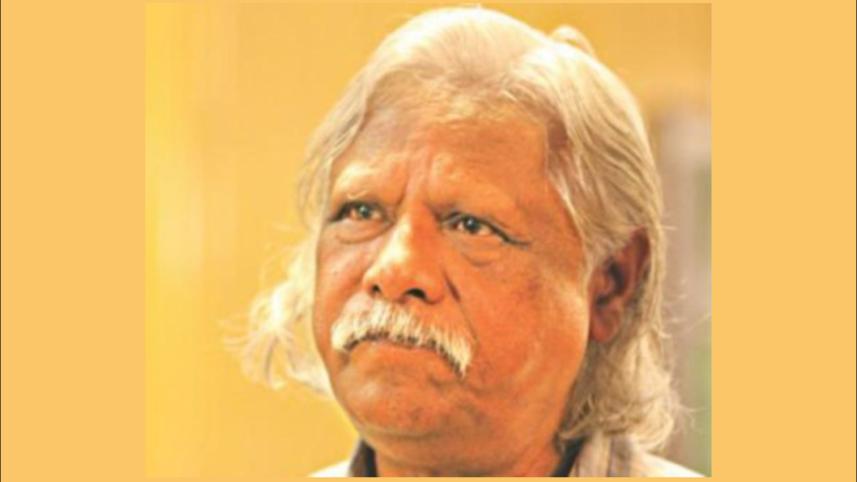CROs vehicles of corruption

Gonoshasthaya Kendra Founder and Trustee Dr Zafrullah Chowdhury has made it clear that they are not going to submit their rapid test kits to the drug administration through any contract research organisation (CRO).
"CROs are a vehicle of corruption. It also means a rise in the cost of the test kit, which goes against public interest," he told The Daily Star yesterday, amid a row between the Directorate General of Drug Administration (DGDA) and Gonoshasthaya Kendra over how to submit Covid-19 rapid testing kit.
There are vested interests in the process of CROs, Zafrullah said.
Bangladesh has reputed research organisations like Bangabandhu Sheikh Mujib Medical University, Institute of Epidemiology and Disease Control Research, Armed Forces Institute of Pathology and Institute of Public Health, he said, adding, "These organization can conduct the validation of our kit and we will surely pay fees as fixed by the government.
"Icddr,b can also be an option for Gonoshasthaya, but not as a CRO of DGDA, but as an independent organisation."
Gonoshasthaya yesterday wrote a letter, explaining their position, to the drug administration.
He said it may take no less than Tk 50 lakh if the rapid test kit developed by local scientists is validated through the CROs. "This is an emergency situation and the DGDA should write specifically that we should go to this or that organisation, except for the CROs. CROs are the middlemen."
Gonoshasthaya Kendra scientists developed the Rapid Dot Blot, which can test for both antibody that grows in the body of an infected person as well as antigen.
When a Gonoshasthaya Kendra team went to the DGDA on April 26, its director general Maj Gen Dr Mahbubur Rahman asked them to go through the CROs. He explained that after CROs prepare a protocol for validation, it will have to be cleared by the Bangladesh Medical Research Council. Then the DGDA's Advisory Committee will need to check and approve it.
The same day, Zafrullah held a press conference to tell the public that the DGDA was not cooperating with Gonoshasthaya even during such an emergency situation, when large-scale tests are imperative to isolate those infected to slow the spread of Covid-19.
In response, the health ministry's media cell held a press conference and said the government for now is not opting for the rapid test kit. The health ministry's additional secretary Habibur Rahman Khan said the World Health Organization has not recommended the use of rapid test kit because the rate of false positive or false negative is high in this test.
In a media release, the health ministry also said that for now there is no scope for the Gonoshasthaya Kendra's kit to be validated, though DGDA DG at the press conference said if Gonoshasthaya Kendra applies through proper channel, which means through CROs, it will conduct validation for future use if WHO recommends.
Zafrullah said it is very unfortunate that the government has decided not to go for rapid tests. Some countries have rejected rapid test kits imported from some companies in China, but many of the countries are using these kits. The quality of all rapid test kits are not same.
The health ministry's claim that no country is using rapid test kit is wrong, he said, adding that if WHO does not recommend it, it doesn't mean it cannot be used after national validation.
There are even many cases where RT-PCR tests (that diagnose the presence of Covid-19 by using nose or throat fluids) also gave false negative and false positive results. Some level of errors are there in both the methods of testing, said Zafrullah.
On April 27, the Indian health ministry has given a go-ahead for home-grown rapid test kits. Iran is producing ten lakh rapid test kits every day, he said.
The British government on April 25 ordered the production of up to 50 million new immunity tests (rapid tests) as part of what experts hope will be a "game-changing development" in the battle against Covid-19, the dailymail reported.
"We can guarantee our kit is close to those of RT-PCR. Most importantly, the low-cost kit can save thousands of lives," he said.
Asked about health ministry's statement that nowhere in the world rapid test kit could test both antibody and antigen, Zafrullah said, "Just because it was not developed anywhere doesn't mean it cannot be developed. We have done it and got good result. Our kit's accuracy is more than 90 percent."




 For all latest news, follow The Daily Star's Google News channel.
For all latest news, follow The Daily Star's Google News channel.
Comments